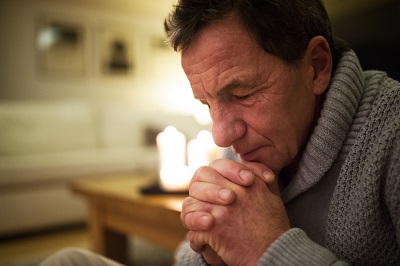
While in graduate school in the mid-‘80s I read Henri Nouwen’s book, The Wounded Healer. That book changed my life.
At the time I was walking around with wounds I had experienced physically, emotionally, verbally, mentally and spiritually. I was ashamed of these wounds and did not know what to do with them. After reading the book, I began the journey of becoming a wounded healer.
In another book, Bread for the Journey, Nouwen states:
Nobody escapes being wounded. We all are wounded people, whether physically, emotionally, mentally, or spiritually. The main question is not “How can we hide our wounds?” so we don’t have to be embarrassed, but “How can we put our woundedness in the service of others?” When our wounds cease to be a source of shame, and become a source of healing, we have become wounded healers.
We have all been wounded in some way. The question is, as Nouwen puts it, “not how can we hide our wounds? … but how can we put our woundedness in the service of others?”
Let me suggest four things you can do that will help you to move from the wounded victim to a wounded healer.
Admit you have wounds. This may be the most difficult part of the process, particularly if you’ve had a good life overall. But a past incident that you can recall that has shaped your life in a negative way is the result of a wound.
One day my 6-year-old was being defiant and after talking to her a couple of times, I lost it. I yelled at her, grabbed her by the arm and sat her down. She looked at me crying hysterically and with halting words said to me, “You didn’t have to yell at me.” That incident troubled me greatly because I knew in my head what I did was not the way I wanted to treat my daughter. As I reflected on that incident, I realized that he burst of anger was a direct reaction to wounds of my childhood.
Take the time to examine where some of your behaviors and attitudes that you dislike about yourself are coming from, and chances are you will discover they are from wounds of the past.
Recognize you are not alone. We are all wounded. This will begin to lift the shame associated with your wounds. A myth of leadership says leaders are to be perfect. As a result many leaders try to create the impression they have never been wounded. That never ends well.
When you deny or try to hide your wounds, you are unable to relate genuinely to others in their woundedness. Furthermore, your followers are less likely to come to you for help if you deny or conceal your own wounds.
Begin to embrace the fact that you are not alone; you live and lead in a community of wounded people.
Seek healing for your wounds. If we admit we have wounds and recognize we are not alone but do not seek healing, we are no better off as leaders. Only when we seek and experience healing do we become wounded healers.
Begin by asking God to start the work in you. Ask Him to guide you into the process that will work for you.
Find a way to begin talking about and exploring your wounds. This may mean seeing a counselor or joining a small group.
Ask God to give you the grace to forgive those who wounded you. This is often a very difficult part of the journey because memories are still painful. But by the grace of God, and with determination on your part to be a wounded healer rather than a wounded victim, forgiveness is possible.
Which are you: a wounded victim or a wounded healer? Are you ashamed of your woundedness, or are you using it as stepping stones to help others?
If you would like to explore how to move from wounded victim to wounded healer give me a call at 208-880-0307 or email me at errol@errolcarrim.com to schedule a complimentary coaching session on how to move from wounded victim to wounded healer.
